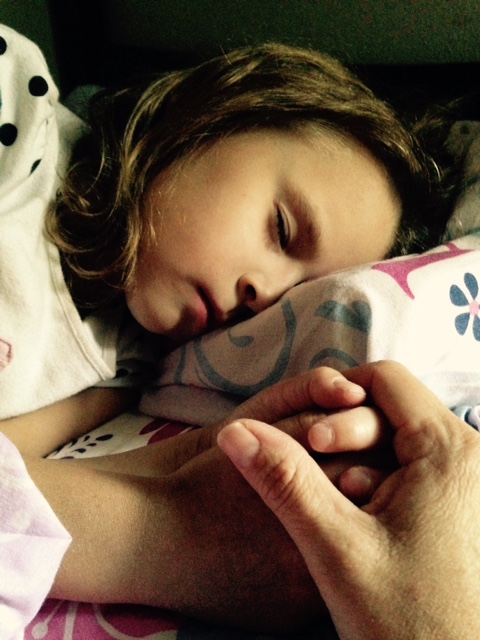Recently, my son asked me to say a prayer with him before he fell asleep.
I was elated, because this is the child who often scoffs at the prayer my daughter requests each night before bed—scoffing and grumbling when she sweetly reminds me, “Mom, don’t forget to say a prayer.”
My son grumbles and rumbles, like a low roar of thunder.
I say nothing—I only snuggle up with my daughter and pray.
My son’s out of the blue request caused me to ponder. Okay, who am I kidding? I’m always pondering, but his request caused me to ponder more, if that’s possible.
His request reminded me of recent discussions I have enjoyed with a friend—a good friend, a sister, my one-of-a-kind midlife crisis averter. The two of us discuss many topics, often, and without shame or embarrassment. We share a kind of freedom in friendship that I have rarely experienced. A topic we’ve discussed on several occasions is religion—usually our shared religion, the one we grew up with.
My son is familiar with this religion too. The night he asked me to pray, however, he met up with spirituality. Oh, he had met up with that special energy before, but that evening it smacked him in the face—kapow!
That night he shook hands with a connection beyond ritual, rite and creed.
I had always used the two words interchangeably—religion and spirituality. Now I know they are different. My good friend and I have talked about the difference between the two words, about their meaning, and we have talked about how to relate the consequences of the application of the words into our life.
My son reminded me. He confirmed it—the words are different. They are not synonyms. Religion is not a prerequisite to spirituality. It’s not a key or a door. My son knows the religion and the creed, but it is spirit that is at his core.
My son made me think, and he gave me hope. Hope that I am teaching him values, hope that he is strong enough to find his own way and his own faith, and hope that he can believe in the unseen despite his complaining.
He knows religion, but his heart knows faith. His heart knew the difference between spirituality and religion without even having to articulate it. His 10-year-old heart gave me confirmation—it even gave me inspiration. (After all, I am writing this story.)
Well, even with the driving force of inspiration I must articulate—I have to articulate everything! I love to articulate, and I also love definitions. (Go figure—I’m a writer.) I love the definition of the word spirit. Let’s articulate the definition, shall we?
Spirit is defined as the force within a person that is believed to give the body life, energy and power, or the inner quality or nature of a person. Spirituality directly relates to this spirit, and it is that spirit that is a part of nature. It is a part of our nature. It is our energy, the current in our veins. It is our life force.
I believe it is the spirit that rests in the hands of our Creator, and I believe if we listen to it’s whisperings, it may have heaps and heaps to teach us.
Shhhh—listen to the sound. Do you hear it?
It may not sound loud like thunder—ha, ha, but it speaks. So, although the repetition of religion might have caused my son to rumble like a great big roll of thunder—spirituality grounded him to his core.
I always want to be spiritual. I want to know God, to talk to him daily.
And I can only hope that I can teach my children to continue to run like the wind, with their own life force. Running alongside religion, if they so choose, but running—never stopping—fearless in their own pursuit of spirituality.
.
Relephant:
Spirituality vs. Religion & Why I Hesitate to Use the Word God.
Does Spirituality Require Religion?
.
Author: A.R. Hadley
Editor: Yoli Ramazzina
Photo: Author’s own.







Read 0 comments and reply